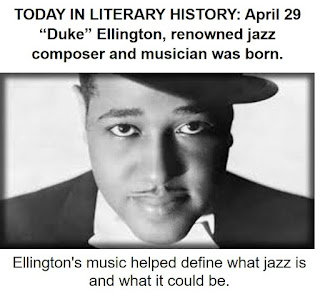
Edward Kennedy "Duke" Ellington (April 29, 1899 – 1974) was an American composer, pianist, and bandleader of a jazz orchestra, which he led from 1923 until his death in a career spanning over fifty years. Born in Washington, D.C., Ellington was based in New York City from the mid-1920s onward, and gained a national profile through his orchestra's appearances at the Cotton Club in Harlem. In the 1930s, his orchestra toured in Europe. Though widely considered to have been a pivotal figure in the history of jazz, Ellington embraced the phrase "beyond category" as a liberating principle, and referred to his music as part of the more general category of American Music, rather than to a musical genre such as jazz. Some of the musicians who were members of Ellington's orchestra, such as saxophonist Johnny Hodges, are considered to be among the best players in jazz. Ellington melded them into the best-known orchestral unit in the history of jazz. Some members stay...



